By Lamphrangbor Nongspung
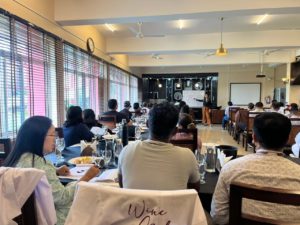 Winemaking masterclass, training of trainers held from June that concludes on August 9, under the apprenticeship of Wine educator, Founder and Director of Hill Zill Wines and Himachal Nectars, and Rakesh Awaghade, Sommelier at Fratelli Wines. The ongoing workshop has been facilitating the trainees through a course agenda of theory and practical classes, project work followed by an examination. With a focus on wine making with local fruits, meads and grapes, organised by The Meghalaya Farmers Empowerment Commission (MFEC) the set goal is to make Meghalaya as the fruit wine capital of the country.
Winemaking masterclass, training of trainers held from June that concludes on August 9, under the apprenticeship of Wine educator, Founder and Director of Hill Zill Wines and Himachal Nectars, and Rakesh Awaghade, Sommelier at Fratelli Wines. The ongoing workshop has been facilitating the trainees through a course agenda of theory and practical classes, project work followed by an examination. With a focus on wine making with local fruits, meads and grapes, organised by The Meghalaya Farmers Empowerment Commission (MFEC) the set goal is to make Meghalaya as the fruit wine capital of the country.
The commission is actively involved in supporting and handholding the local winemakers in the State by providing training to ensure that they shift from traditional wine making and take advantage of the new technology which are available to be able to produce fruit wine which match the quality of not only nationally but even internationally.
MEFC Executive Adviser, BK Sohliya said that there is a huge market and the potential for Meghalaya as far as production of fruit wine.
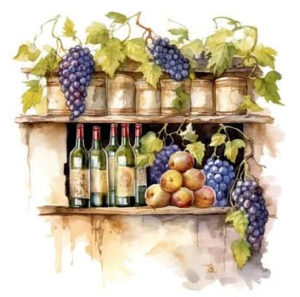 “In fact as a commission we have the objective of making Meghalaya the fruit wine capital of the country. Like Nasik is the grape wine capital, we would want to see Meghalaya become the fruit wine capital,” Sohliya said.
“In fact as a commission we have the objective of making Meghalaya the fruit wine capital of the country. Like Nasik is the grape wine capital, we would want to see Meghalaya become the fruit wine capital,” Sohliya said.
Looking at the journey from where it starts, he recalled that they got permission to showcase the local wine during the North East Food Show held in 2019 at Shillong.
“We know our wines are not so good. We had wines coming from Arunachal, Assam and other States which are much better. But there is a need for the local winemakers to learn from others. We have now seen there is huge improvement in the quality of wines, bottles and labels of the local fruit wines,” MEFC Executive Adviser said.
Sohliya further informed that as a commission they are actively involved in the formulation of the current Homemade Wine Policy at the government level.
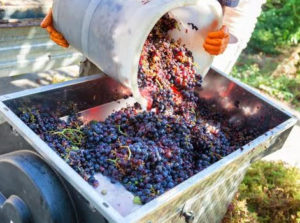 According to him, this policy has come of age since there is a movement right from 2002 when Michael Syiem as the president of the Forever Young Club had been organizing the wine festival every November.
According to him, this policy has come of age since there is a movement right from 2002 when Michael Syiem as the president of the Forever Young Club had been organizing the wine festival every November.
“I think this has opened the eyes of the government about this huge opportunity since globally, fruit wines are eating into the share of grape wines,” he said.
Meanwhile, the MEFC Executive Adviser said that more people, including the younger generation and the millennials, are looking for new tastes and new varieties and fruit wines gives them that experience.
Sohliya believes that Meghalaya should be leading the entire Northeast in the making and finishing of fruit wines.
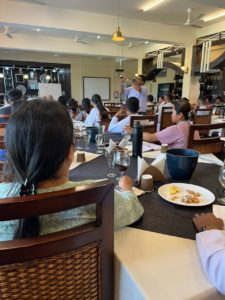 “We have so many fruits which can be turned into good wines. For example, some of the wines are wild apples (Sohphoh Khasi), Sohbrap (passion fruit) and Sohiong (blackberry). In fact, the winemakers of Japanese and European buyers have fallen in love with Sohiong” he stated.
“We have so many fruits which can be turned into good wines. For example, some of the wines are wild apples (Sohphoh Khasi), Sohbrap (passion fruit) and Sohiong (blackberry). In fact, the winemakers of Japanese and European buyers have fallen in love with Sohiong” he stated.
According to him, many large firms such as Rasberra and others have even claimed that Sohiong can be the fruit of the future.
He said that it’s interesting to know that Sohiong earlier was considered wild but now people are collecting it from the wild.
“Now people have started cultivating it because of the demand from the wine industries,” Sohliya said.
The MEFC Executive Adviser further made mention about the winemaker from Nongstoin, Ioannis Shylla after a trip to Nasik funded by the commission decided to invest his own money to set up a high tech winery in Nongstoin after assessing the potential of Sohiong.
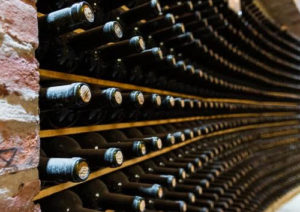 According to him, Sohiong is available in large quantities in the Nongstoin area.
According to him, Sohiong is available in large quantities in the Nongstoin area.
Moreover, he feels that the growth of the wine industry will help claw back the farmers.
Citing an example, Sohliya said that if strawberry wines take off then more farmers will cultivate strawberries.
Sohliya further expanded his point by taking the example of the traditional fruit Sohphei which can also be made into wine. “If that wine becomes popular then there is no end to how much Sophhie we can produce ” MEFC Executive Adviser informed.
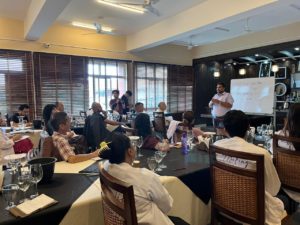 He stated that this is one of the reasons why the commission decided to get involved because it is directly related to farmers’ livelihoods and income and can aid in augmenting it.
He stated that this is one of the reasons why the commission decided to get involved because it is directly related to farmers’ livelihoods and income and can aid in augmenting it.
“Secondly, if we are to make a mark in the fruit wine market, we need to bring in technology. So what we did was we set up our own winery in the Institute of Hotel Management Catering Technology & Applied Nutrition campus because with the winery that there is, it is India’s first mode fruit making winery. It is a small winery which is about 1000 liters but it is meant to train people and our winemakers across the Northeast,” Sohliya said.
According to him, they have set up the modern setup winery since the local wine makers need to know the modern technique. Our winemaking has been traditional.
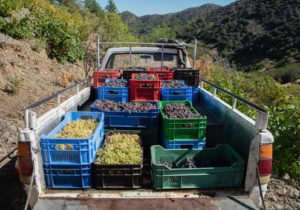 “If we want to reach the national and global standards and if we are to compete with other countries then we need this scientific winery,” he said.
“If we want to reach the national and global standards and if we are to compete with other countries then we need this scientific winery,” he said.
The MEFC Executive Adviser said that they have also calculated that Meghalaya has an average of 3-4 lakh tourists a year and want to carry home a token of memory from Shillong, apart from the already known and available items.
“Many of the tourists we met asked us what we can take, besides knowing about spices like lakadong turmeric, black pepper and honey. Wine is something that is available to the tourists in tourist spots and can be taken back with them” Sohliya said.
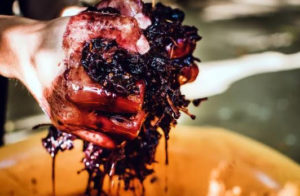 Observing that sometimes people go outside and bring back wines from abroad like France, he said they are looking at tourism as a major market.
Observing that sometimes people go outside and bring back wines from abroad like France, he said they are looking at tourism as a major market.
“There are three markets which we are looking at, that include normal and regular markets where people make purchases from the wine stores or bonded warehouses. The second market are restaurants and we already have places like Rynsan where they have procured the license to serve local wines and serve it in fusion style.” Sohliya said.
He added that he had received feedback from the winemakers and they said that the local restaurants are buying wines every week indicating the rise in clientele and demand.
“So surely there’s big demand. In fact, there is a very clear policy of the excise department called beer and wine license which allows any restaurant and/or cafe to apply for this license and then serve local wines with their food.” MEFC Executive Adviser said.
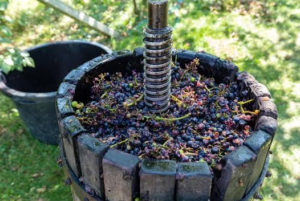 Emphasising on the economic viability, Sohliya presses on why the commission would like many of the entrepreneurs to come step in and grow this community.
Emphasising on the economic viability, Sohliya presses on why the commission would like many of the entrepreneurs to come step in and grow this community.
Optimistic local wine makers
The newly formed Meghalaya Fruits Wine Makers Association (MFWMA) are optimistic that the fruit wine industry will come up in a big way in the next few years.
MFWMA president, Brian Dermot Kharpran Daly said that they will begin marketing of the local fruit wine on a large scale but at the moment they are doing it just among themselves in Shillong since there are still many things that still to be organised.
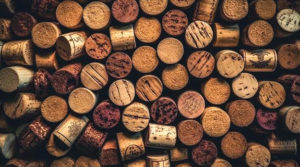 According to Daly, it is not just about the bottling since the labeling is also another aspect that has to be looked into according to specifications.
According to Daly, it is not just about the bottling since the labeling is also another aspect that has to be looked into according to specifications.
“So until all these small things are readied, we can’t really go out and market our stuff,” MFWMA president said.
Meanwhile, Daly informed that they have only just formed the association and are yet to receive the certification of registration.
“We will be discussing how to move ahead. One of the problems which we are facing is to get the bottle. Individually we cannot bring truck loads of 20,000 to 30,000 bottles. As an association we can order in bulk and distribute it among all the members,” Daly said.
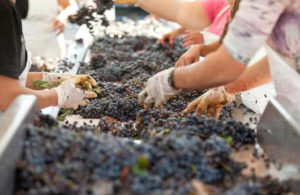 Meanwhile, MFWMA president said that they were facing a lot of problems earlier since they did not have a policy in place adding that the government eventually had come out with a policy.
Meanwhile, MFWMA president said that they were facing a lot of problems earlier since they did not have a policy in place adding that the government eventually had come out with a policy.
“Now the commission is also in the works to help the farmers and in turn, help them at the same time. The commission had recently sponsored a trip for its members to Nasik and to learn the modern methodologies of wine making. It was a beneficial trip for us to improve the standards of winemaking,” he said.
Stating the need to invest in modern equipment, Daly said that this is an opportune time since they think that it is not just people who are interested in wine making but even the farmers, especially with the government making efforts to give a major fillip to the fruit making industry.
 According to Daly, it is beneficial for everyone since the government is trying to integrate both the employment aspects as well as economic leveraging.
According to Daly, it is beneficial for everyone since the government is trying to integrate both the employment aspects as well as economic leveraging.
Meanwhile, Daly informed that at the moment, the primary source of demand is from the tourism sector in the state and tourists are lured to taste flavours that are unique to the State and fruit wine is one such niche area.
When asked about the winemaking certification course, MFWMA president said that this training will definitely help impart ample knowledge to the trainees who are in attendance on the art and science of winemaking.
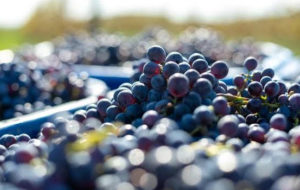 “Some sections of this group will also be able to further impart training to others. So in that sense, it is a training of trainers, who will in turn teach others.” Daly said.
“Some sections of this group will also be able to further impart training to others. So in that sense, it is a training of trainers, who will in turn teach others.” Daly said.
Culturally, Daly observes that drinking wine for merriment, understanding its flavours and appreciating it is an inherent trait among Europeans, and even if not at a proficient level, this culture has come into India and is trickling into the Northeast.
“If we can learn complimentary wine pairings with particular types of foods then it will result in a more pleasing intake. This culture has to be created since we don’t have a wine drinking culture.” Daly said.
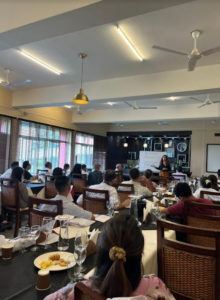 According to him, when people become aware and know what wine is and how it is taken then he is pretty sure that people would want to get into the sophistication of drinking wine.
According to him, when people become aware and know what wine is and how it is taken then he is pretty sure that people would want to get into the sophistication of drinking wine.
FUTURE OF FRUIT WINE MAKING IN MEGHALAYA
Wine educator and founder/director of Hill Zill Wines and Himachal Nectars, Priyanka Save said that she is not a traditional wine maker but this has been an area she’s been drawn to.
“For me it’s been passion driven, wanting to work with the fruits that we grow in our region and that I am lucky that I am able to scale it to commercial production,” she said.
Save states that she sees similar motivation among the locals since there are a sizable number of winemakers and fruit wine makers in Meghalaya, who are from non-traditional backgrounds and are not doing grape wines since no grapes are grown in Meghalaya.
“They are making wines from their own locally grown fruits and I think that somewhere there is a synergy. I am sure that if they get the kind of opportunity that I’ve received, they will be able to scale up as well and that’s my purpose here.” Save said.
Talking about the training, Hill Zill Wines and Himachal Nectars director said that they have two different courses – wine appreciation and techniques of winemaking.
“The first one is the wine appreciation which entails an array of wines. Majority of the courses that are conducted in the country pertaining to wine are mostly centered on grape wines only because of its history and our colonised past.” says Save.
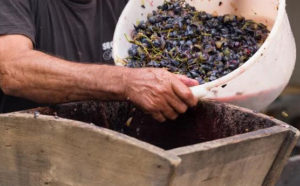 According to her, she thinks it is this cultural influence from a historical context that grape wine is spoken about extensively and therefore this course opens up horizons by including not only grape but fruit wines too as well as meat in fermented beverages.
According to her, she thinks it is this cultural influence from a historical context that grape wine is spoken about extensively and therefore this course opens up horizons by including not only grape but fruit wines too as well as meat in fermented beverages.
“Giving weightage to a variety, paves the way to innovation” she said.
The Hill Zill Wines and Himachal Nectars director also added that the second course is on the different techniques of winemaking that focuses on non-traditional winemaking where they will also showcase fruit winemaking by using honey as well as local fruits.
“That’s where we step in by boosting the case of those who are already in the industry but improvising that. We’re introducing them to new products of winemaking,” she said.
According to her, the effort is to introduce a professional attitude towards winemaking not only complementary to the existing agriculture, but also forms the basis and the backbone of tourism based wines.
Citing the example of Nasik, she says once upon a time it was a place for pilgrimage but now people go there for wine tourism as well.
“I think that potential is super high in Meghalaya,” she said when asked about the future of wine making in Meghalaya.
Save stated that the tourist influx which comes to Meghalaya will be looking for some exotic foods that are not found anywhere else in the country, which are native to the state and people are already working on it.
Hill Zill Wines and Himachal Nectars director said that she would like to call Meghalaya the fruit bowl of India.
“Himachal is the fruit bowl of India, but Himachal has only a couple of fruits but Meghalaya and the Northeast have so many different fruits,” Save said.
According to her, there is a need to have a culture that is thriving on fruit wines and then have a tourist inflow.
“I think all of this marrying together – the agriculture, tourism, the fruit processing, and winemaking would have a positive outcome.” she said.
When asked about the food pairing event, she said that the food pairing part is fun and they will be looking at how a variety of foods can be paired.
“Our ultimate aim would be to know your everyday foods that could be paired with these products. When the tourists arrive, they will taste the local cuisine and along with that they will taste the local wines,” she said.
According to her, the objective of food pairing is to look at the local ingredients, local fruit wines, putting them all together and serving them on a platter. “This is what the future of Meghalaya would be serving local food to clients along with the local fruit wines,” Hill Zill Wines and Himachal Nectars director said.
The last two days of interaction has been a tremendous learning experience for our winemakers and wine connoisseurs. Our wine makers were exposed to the intricacies and subtleties of the world of wines which also brought to the fore the tremendous market opportunities that have opened up for the state and the Northeast, both at the national and global level. At a producer level we learned that there is an increasing paucity of fruits because of the growing demand from wineries which augurs well for our farmers and also provides a strong rationale for emphasising the growing of more fruit trees and increasing the diversity. With the commencement of this training, which is a first of its kind in the country, we hope to build up a cadre of fruit wine entrepreneurs, connoisseurs and fruit wine masters who will go forth and spread the message of fruit wines to the world with consequent benefits to our farmers across the region.
Whether this association will prove lucrative for the local winemakers and the winemaking industry in Meghalaya is what time will tell but the training course has surely introduced accessible and doable mechanisms to boost the ongoing production.



